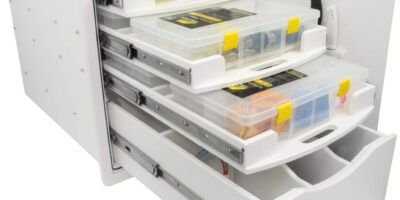How to Improve Your Angling Skills
Improving fishing skills has gotten complicated with all the tips, techniques, and gear upgrades flying around. As someone who spent forty years progressing from complete beginner to consistently successful angler, I learned everything there is to know about what actually improves your fishing versus what just wastes time and money. Today, I will share it all with you.

Understand Your Gear
Knowing your equipment intimately makes everything else easier. Rods, reels, lines, and tackle all serve specific purposes. I spent years learning the differences—spinning reels provide versatility for most situations, while baitcasting reels deliver precision for specific presentations. Line selection balances visibility against strength. Lighter lines catch more fish by being less visible, but they break more easily. Heavier lines land bigger fish but spook wary ones. Understanding these trade-offs lets you make informed decisions rather than guessing.
Learn About Fish Behavior
Fish behavior patterns dictate when and where they bite. Water temperature, weather, time of day, seasonal changes—all influence fish activity dramatically. Bass get aggressive in warm water while trout shut down above 68 degrees. I study preferred habitats and feeding patterns for every species I target. This knowledge directs bait selection and location choices. Understanding why fish behave certain ways transforms fishing from luck into strategy.
Master Knot Tying
Probably should have led with this section, honestly. Knots are the connection between you and fish—weak knots lose fish, period. I practice the Palomar, Improved Clinch, and Loop knots until I can tie them in darkness or freezing conditions. Wetting line before tightening knots reduces friction that weakens them. Lost fish from failed knots is entirely preventable and absolutely infuriating when it happens.
Improve Your Casting Technique
Accurate casting places bait where fish are instead of where they aren’t. I practiced casting for hours before it became automatic. Overhead casts provide distance, sidearm casts work under overhanging cover. Controlling power matters more than maximizing distance—gentle, accurate casts often outproduce powerful splashing ones that spook fish. Precision develops through repetition until muscle memory takes over.
Use the Right Bait
Bait selection makes or breaks fishing trips. Natural baits—worms, minnows, insects—are effective but require replacement and maintenance. Artificial lures mimic prey appearance and movement without the hassle. I match bait to target species and local forage. Understanding what fish are actually eating in your water matters more than using whatever the tackle shop recommended. That’s what makes successful anglers endearing to us fishermen—we observe, adapt, and outthink fish rather than just outspending them.
Observe and Adapt
Adaptation separates successful anglers from frustrated ones. Water clarity changes your lure color choices. Current speed affects presentation. Weather shifts alter fish behavior. I constantly observe conditions and adjust techniques accordingly. Watching other successful anglers provides insights—I’m not too proud to learn from anyone catching fish when I’m not. Flexibility beats stubbornness every time.
Practice Patience
Patience in fishing isn’t passive waiting—it’s active observation combined with willingness to let techniques work. Some days fish don’t bite regardless of skill. I stay calm, enjoy the environment, and treat each outing as practice even when catches are slow. Frustration ruins fishing and prevents the mental clarity needed to problem-solve. Patience developed over years becomes the foundation for consistent success.
Maintain Your Equipment
Gear maintenance prevents failures that end fishing days. I clean rods and reels after every use, especially saltwater exposure. Line gets checked for wear and replaced regularly—damaged line breaks at the worst moments. Proper storage in cool, dry places extends equipment life significantly. Good maintenance means focusing on fishing instead of fighting equipment problems.
Stay Educated
Fishing knowledge evolves constantly—new techniques, better equipment, changing fisheries. I read fishing content regularly, watch instructional videos, and participate in forums where experienced anglers share knowledge. Joining local clubs connects you with people fishing your specific waters. Continuous learning compounds over years into expertise that dramatically improves success rates.
Practice Catch and Release
Sustainable practices preserve fishing for future generations. I use barbless hooks for easier releases, handle fish minimally with wet hands, and revive them properly before release. Keeping some fish for meals is fine, but releasing most maintains populations. Proper release techniques ensure fish survive to grow larger and reproduce. Conservation isn’t just ethics—it’s self-interest in maintaining quality fishing.
Log Your Trips
Fishing logs reveal patterns invisible in single trips. I record date, location, weather, water conditions, species caught, and successful techniques. Reviewing logs shows what actually works versus what I think works. Patterns emerge over seasons that predict where fish will be under specific conditions. This data becomes your personal fishing guide customized to your waters.
Experiment with Different Techniques
Trying varied techniques—fly fishing, trolling, ice fishing, jigging—builds versatile skills and keeps fishing engaging. Each method teaches different aspects of fish behavior and presentation. I experiment regularly with new approaches even when comfortable techniques are producing. Experimentation sometimes fails, but the learning justifies occasional slow days. Becoming well-rounded makes you effective across diverse situations and species.
“`
Recommended Fishing Gear
Garmin GPSMAP 79s Marine GPS – $280.84
Rugged marine GPS handheld that floats in water.
Garmin inReach Mini 2 – $249.99
Compact satellite communicator for safety on the water.
As an Amazon Associate, we earn from qualifying purchases.



